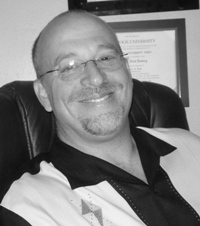
Let me introduce myself! My name is Michael D. Rosberg Ph.D. I’m excited about the opportunity to contribute to the PsychAlive mental health community. In the coming months I will be blogging about the issues facing persons suffering from a major mental illness, along with the important issues facing the families and friends of these individuals. These include family stress, illness and diagnosis, our fractured mental health system, divorce, affected teens and kids, family dynamics, parenting, and more.
One of the more important problems facing families coping with mental illness is the morass created by a mental health system which is clearly disconnected. The first week of October is labeled Mental Health Awareness Week, and once again this week of awareness has come and gone. This year there were no parades – after all “we are in a recession”. If you look on their website the National Institute of Mental Health (NIMH) suggests that “an estimated 26.2 percent of Americans ages 18 and older — about 1 in 4 adults — suffer from a diagnosable mental disorder in a given year, and about 6% (1 in 17) suffer from a serious mental illness.” With a U.S. Census of over 300 million people, that comes to 18 million people suffering from a severe mental illness. As a point of reference, if you were to go to the Rose Bowl for a sold-out football game (hopefully watching UCLA) you would be sitting with about 92,000 fans. With 18 million people in the US suffering from mental illness – that’s 195 Rose bowls!
Recently, I read an article wherein untreated mental illness costs more than $100 billion each year, and the majority of people with mental illness only receive treatments when they are in jails or in trouble. Here in Los Angeles, the downtown Twin Towers jail was labeled on the recent episode of the television program 60 Minutes as “the largest mental institution in the United States”. That’s a pretty expensive way to ignore people, don’t you think?
As a clinical psychologist I have specialized in working with people suffering with conditions with names such as: “schizophrenia”, “schizoaffective disorder”, “borderline personality disorder”, and “major depression” – just to mention a few names. I like this work and appreciate these people, in part, because they have such a raw emotional honesty, and because these people (like all of us) long to have somewhere they can truly belong. They wish for the social opportunities that seem to be taken for granted by everyone else.
The people I see in my practice live in a pretty harsh world where access to care, reasonable places to live, jobs, and even friendships are relatively inaccessible. They’re also forced to live in a world where psychotherapy — our “talking cure”– has become almost entirely unavailable. One county administrator told me recently, “They (persons with a diagnosis of a mental illness) can’t benefit from psychotherapy………..no access to insight.” That was that, no to a referral for individual relationship oriented treatment. Not worth it I guess.
The paradox is glaring: disconnected people are denied access to therapy to treat their own isolation because someone decided it “wasn’t worth it”. In my work with individuals with a severe mental illness and their families and friends, we’ve identified that alienation is a profound and a reasonable response to a culture with little patience. Surely, most will agree that we live in an increasing intolerant and alienating world.
The process of identifying the barriers and impediments that prevent people with real mental illness from having an active life, a life filled with civil liberties so taken for granted, is complicated to be sure. But, as in so many cases, the lifting of barriers will only occur with the acceptance of these people, who are worthwhile, and with the rejection of our own negative reactions toward people who are different from the “norm.” It must come from a humanistic approach, which believes that front loading service is “worth it”. For my part, I think we need to bring back a little psychotherapy.
Thanks for reading, and I look forward to talking to you again soon.
Send me an e-mail at: MRosberg@aol.com. Website: www.AnneSippiClinic.com
Michael D. Rosberg, Ph.D., is both a Licensed Clinical Psychologist and Licensed Marriage Family Therapist (MFT) who began treating refractory mentally ill patients in 1979. He has provided treatment, trained, and taught in multiple treatment environments including both outpatient and inpatient settings.

